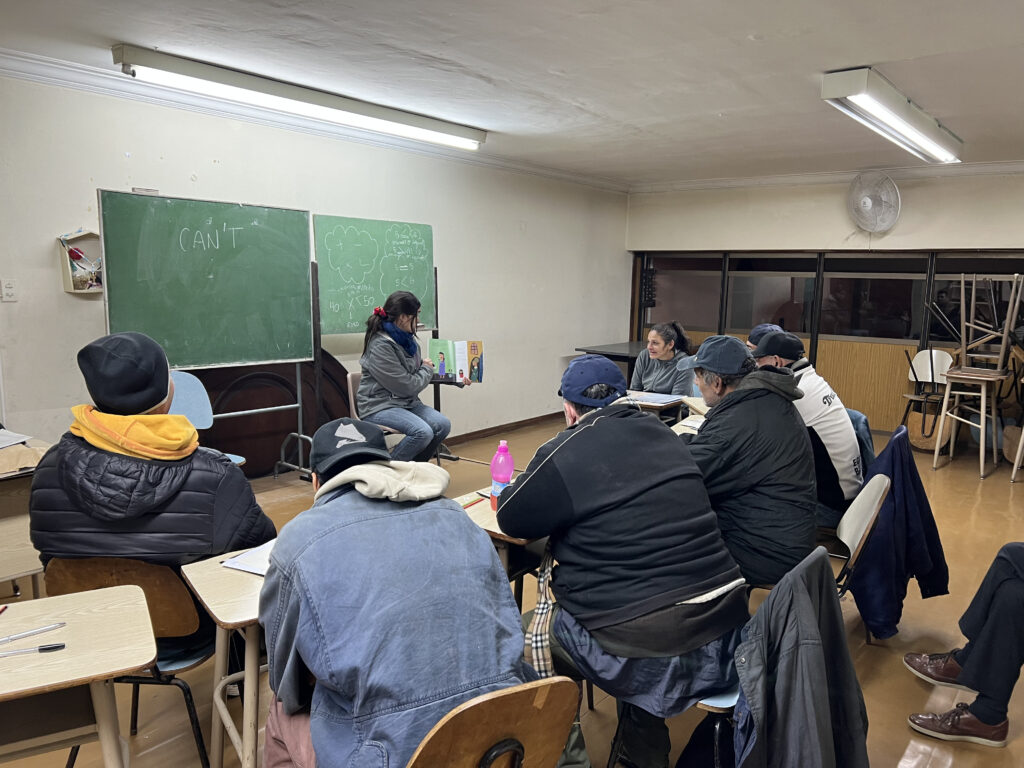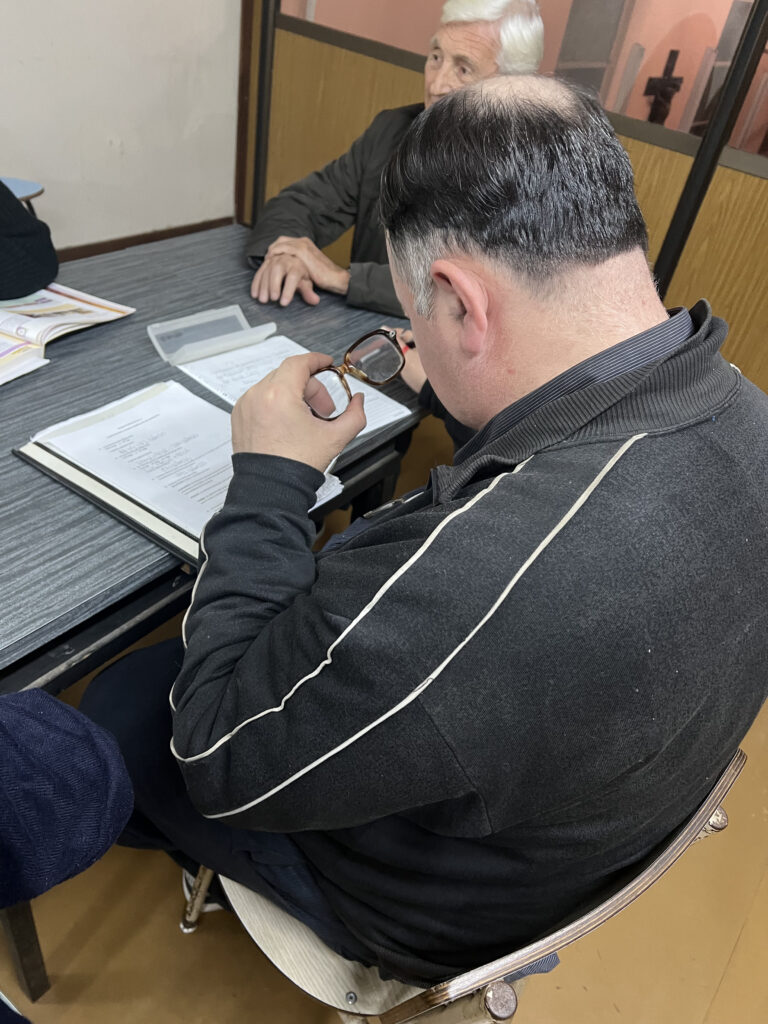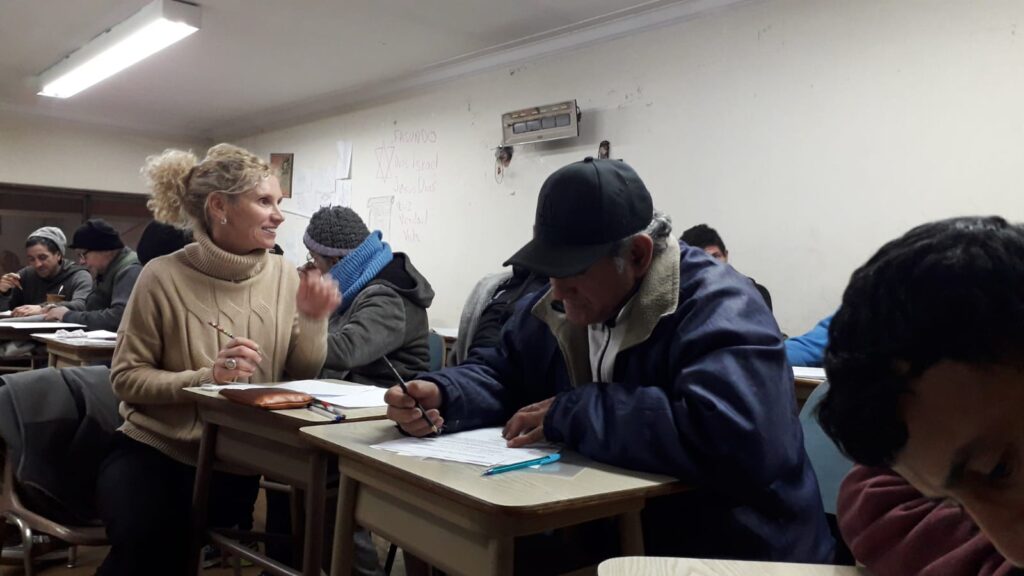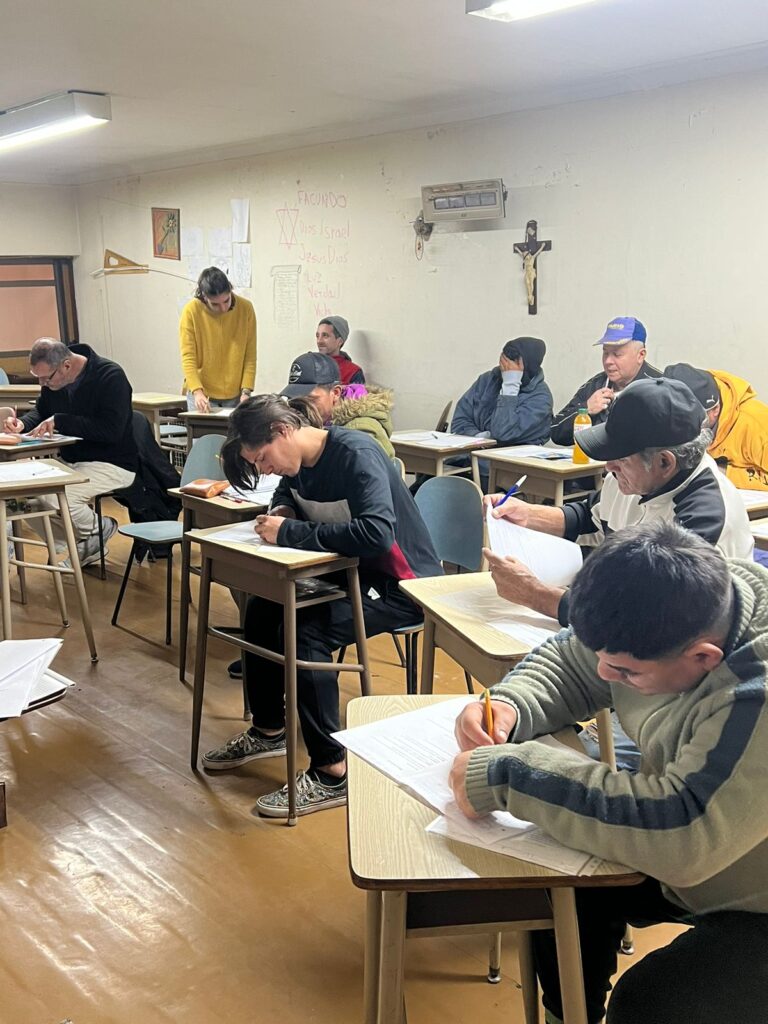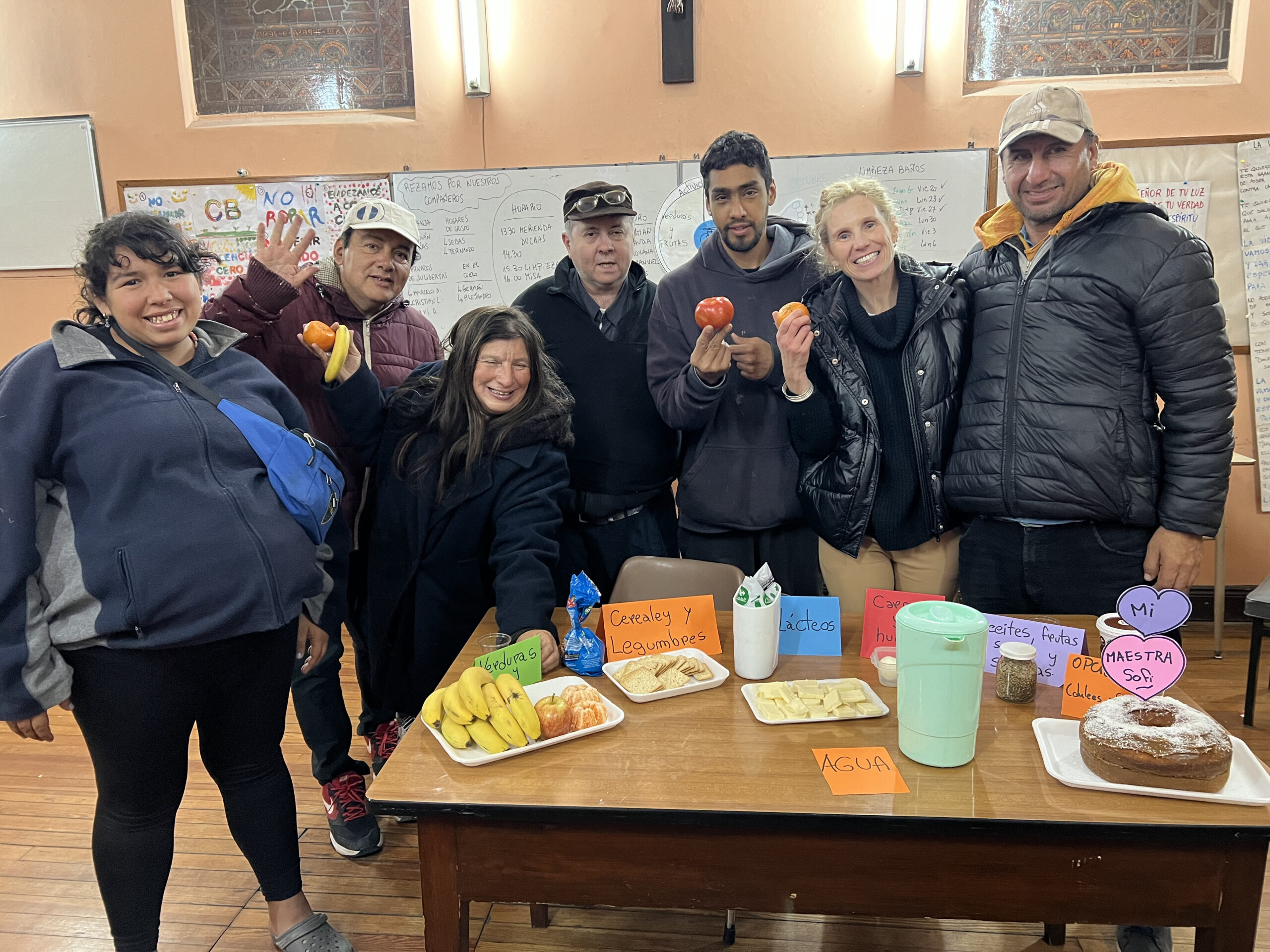
04 Dec A SOUP KITCHEN AND, MORE AND MORE, A LARGE FAMILY. ARGENTINE
The El Peregrino Soup Kitchen, known in the city of Buenos Aires for giving lunch every day to approximately a hundred people living on the streets, for more than 30 years has been trying to give new responses to the question through MAGIS.
One of these was in 2019, when we decided to open a Neighborhood Center. This forms part of the Great Family of Hogar de Cristo, a federation that throughout the entire country tries to address situations of social vulnerability and the problem of substance abuse in a comprehensive way.
Some years afterwards, we were celebrating another step in this direction. Four months ago, in the same space of the Neighborhood Center and the Soup Kitchen, we have been able to open “The little school”, a classroom associated with a city school by means of which all could have access to their
official diplomas for the primary and secondary levels of education.
We share with you some snippets from this time of learning together. Some are from when we were just beginning; others we discovered along the way.
The first was teamwork. From last year, dialoguing with members from other neighborhood centers of the Familia Grande del Hogar de Cristo, we learned about what was already in place: groups of students pursuing their studies in person in the neighborhood centers, and later all their work is computerized and sent to an official school for adults in the city. There, their teachers (with whom we spoke in order to know what content to address and how to do it) receive the material, evaluate it and award the credits earned. At the end of three years, they receive their diplomas. This filled us with hope, in the face of the reality of so many people who have not been able to complete their studies, there was a possibility of joining with a concrete project so that they could accomplish this.
Until that moment, the dream of offering an opportunity for formal education seemed beyond the reach of our community, but soon the horizon opened up, and our hopes were revived anew. Now, Sisters and laity are part of the team that that works on this task, each one contributing his or her best.
The structure they presented to us focuses on the person, with his or her needs, rhythm, capacities and abilities, and this is the way we are experiencing it daily. How is this school different from other similar adult education programs? For example, think about the difficulties that a person living on the street with an addiction issue can have in keeping up with a course even for a quarter. In place
of this, the proposal is for them to study the material intensively for only two months, and in this way make it easier for them to pass the course, without requiring a continuity that might exclude them. This way, with the transient situation inherent in their reality taken into account, the students
can begin their programs in a neighborhood center and continue them in another without any obstacles. It is this way because, in fact, they are all enrolled in one and the same school where they are associated. What is important is not the place where they take the courses but the ability to offer them the opportunity to be able to do it wherever they may be.
Furthermore, just as we consider that attending to one’s education is a key for each person to have more resources to get out of the situation of homelessness and addiction, we also find many dimensions to keep in mind so that it may be possible for them to learn. The first day of classes, for example there are several students who are unable to read because they do not have glasses, and
there is a need to find a way to provide them. Other times, some needed to be able to take a shower before beginning to work. Also, there are necessary procedures to go through in government offices in order to obtain documents to present in school to enroll. And each day we have to begin
by offering them a good meal so they will have have energy throughout the day. If education is called to be ever more comprehensive, it is because life is complex. Leaving out no part of reality demands as much comprehensiveness in learning as in the framework necessary for educational progress.
Finally, we have connected in this time with our desires. They are those which have moved us to begin this project, when someone timidly said, “I can’t go to school”, “I want to learn how to read,” “I have been living in the streets with my brothers since I was six years old.” There are also those who learn new skills, identify themselves with the character in a story to be able to share the
knowledge that each one brings, to smile on redrawing and coloring a leaf, to try using some math in order to be able to calculate quickly how much material is needed to fix a wall… Desires, then, intertwined with those of God, that remind us that we are His sons and daughters whom He loves, that our lives are very valuable.
We are coming to the end of the 2023 academic year. These weeks we have been submitting the first computerized folders to the school that serves the neighborhood centers. Each day we experience more that we are a Family. We want to continue listening to one another and to the Spirit in daily life, in order to receive life as it comes and so that our way of teaching and learning may be a space of reparation, a sign of the Kingdom and his justice in our midst.
Sofía González, aci
